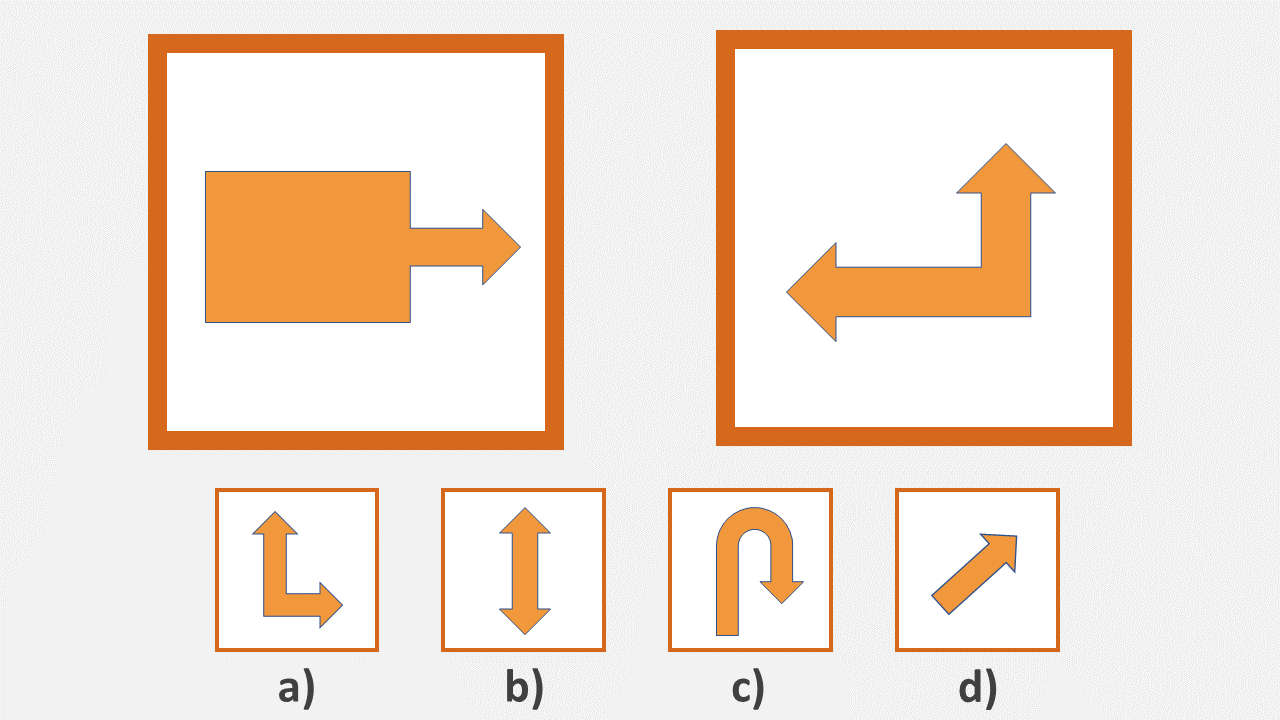PI Cognitive Assessment - Examples and Tips 2026
Updated November 20, 2023
- What Is a Predictive Index Cognitive Assessment?
empty
empty
empty
- What Does the PI Cognitive Assessment Measure?
empty
empty
empty
- Predictive Index Cognitive Assessment Practice Test Questions (2026)
empty
empty
empty
- How Is the PI Cognitive Assessment Scored?
- How to Prepare for the PI Cognitive Assessment in March 2026
- Frequently Asked Questions
- Final Thoughts
The Predictive Index Cognitive assessment measures general cognitive ability and the capacity to understand new concepts.
Cognitive ability is a good predictor of potential success in a job.
This is why the PI Cognitive Assessment is used as part of the recruitment process.
What Is a Predictive Index Cognitive Assessment?
The Predictive Index Cognitive Assessment is a multiple-choice test. It is used as a measure of abstract intelligence.
This general intelligence is your ability to reason, solve complex problems and adapt to new situations.
This means the test does not rely on previous experience or educational knowledge. It is also not an IQ test.
The PI Cognitive Assessment specifically tests your learning ability to determine your aptitude for a role.
History of the PI Cognitive Assessment
The Predictive Index was founded in the US by Arnold Daniels in 1955. For over the last six decades, the company has been at the forefront of talent optimization.
The Cognitive Assessment was developed in 2010. It was created to gain a deeper understanding of an individual’s capacity for learning.
Produced in accordance with the Standards for Educational and Psychological Testing, it is considered to be ethical, reliable and fair.
It was formerly known as the Professional Learning Indicator, or the PLI.
Today, it is often used in combination with other Predictive Index tests such as the Job Assessment and the PI Behavioral Assessment.
The PI Cognitive Assessment is a valuable tool that objectively determines a person’s future success in the workplace.
Practice PI Cognitive Assessment with JobTestPrep
What Organizations Use the PI Cognitive Test?
For over the last sixty years, thousands of companies have used the PI Cognitive Assessment.
It has been used successfully across a range of industries.
Some companies that use the PI Cognitive assessment include:
- IBM
- Microsoft
- IKEA
- Accenture
- BP
- Unilever
- Subway
As a type of psychometric test, it measures reasoning, cognitive abilities and the aptitude for learning.
They are used as part of the preliminary screening stage of the employment process.
Some companies also use them for entry onto graduate schemes as well as for more senior positions.
The test provides an additional data point for the evaluation of potential candidates.
The results determine whether the applicant moves to the next stage of the recruitment process.
Practice PI Cognitive Assessment with JobTestPrep
The Benefits of the PI Cognitive Assessment
The results from the PI Cognitive Assessment are used alongside other candidate information. This includes the applicant’s resume and cover letter.
Together, they provide a good indication of the prospective candidate’s aptitude for the role.
The test reveals a candidate’s:
- Ability to handle change in busy environments
- Problem-solving ability
- Learning ability
- Affinity for the role
- Likely fit for the job and company
They are used by employers to reduce the chance of a poor hiring decision. It also effectively removes bias from the selection process.
They enable companies to create a workforce with the greatest potential for success.
The test is straightforward to distribute to candidates. This is done by sending an e-mail link.
The test is generally taken remotely online. Some organizations require candidates to repeat the test in person, where the results can be verified.
You may be asked to take the test remotely whilst using your webcam. Check all details beforehand so you know what to expect.
The results are simple to interpret. This makes it a popular choice for different sized organizations.
What Does the PI Cognitive Assessment Measure?
The purpose of the test is to determine a candidate’s cognitive ability. This is an accurate prediction of future job success.
The test focuses on three different areas of reasoning.
1. Numerical Reasoning
This section includes questions that test your numerical reasoning ability.
Number series questions require you to state the missing numbers in a series. You must identify the pattern or sequence to know which ones are missing.
Mathematical word problems test your mathematical reasoning ability. You will need to interpret and analyze the information provided.
Number quantity questions ask for the largest or smallest number. You may have to convert decimals into percentages, for example, to compare the quantities.
Although the use of a calculator is prohibited, you can jot down notes on scrap paper to help.
2. Verbal Reasoning
This section includes questions that test your ability to understand word definitions and the relationship between words.
Some questions test your deductive reasoning ability. You are given three assumptions and a conclusion.
You must state whether the conclusion is correct, incorrect, or you don’t have enough evidence to decide.
Other questions include identifying antonyms or synonyms. These are words that have the opposite or the same meaning respectively.
Word analogies are also used. These questions test your ability to determine relationships between words.
3. Abstract Reasoning
This section tests your non-verbal reasoning ability. You will be asked to identify patterns and understand relationships.
You will be presented with diagrams and asked to find:
- Missing items from a series of images
- Visual analogies that share a similar relationship
- Common features between images to identify the odd one out
These questions assess your spatial and logical reasoning skills as well as inductive reasoning.
The PI Cognitive Assessment is available over 70 languages. It is recommended you sit the test in your native language to achieve the maximum score.
Predictive Index Cognitive Assessment Practice Test Questions (2026)
The PI Cognitive test is a 12-minute test including 50 multiple-choice questions.
Candidates are challenged to answer as many questions as possible within the strict time limit.
This means answering an average of four questions every minute. Due to this strict time frame, most candidates are unable to complete every question.
It is important to remain focused and attempt the questions as quickly as you can.
The short testing time is necessary to accurately assess a candidate’s learning ability.
In the test, you will be presented with 10 screens with five questions on each page.
You don’t have to answer all the questions to move on to the next screen.
You are able to navigate using the ‘back’ and ‘next’ buttons at the bottom of each page.
It is not recommended to complete the test using a smartphone or tablet. A larger screen size is more helpful for test takers.
Some PI Cognitive Assessment sample questions are provided below.
Predictive Index Cognitive Assessment Practice Test Question – Numerical Reasoning
This is a quantity analysis style question.
If you need to prepare for a number of different employment tests and want to outsmart the competition, choose a Premium Membership from JobTestPrep.
You will get access to three PrepPacks of your choice, from a database that covers all the major test providers and employers and tailored profession packs.
Which of the following has the lowest value?
a) 0.64
b) 2/3
c) 0.75
d) 3/4
Predictive Index Cognitive Assessment Practice Test Question – Verbal Reasoning
This is a verbal analogy style question.
'Boat' is to 'vehicle' as 'whale' is to…
a) Sea
b) Watercraft
c) Mammal
d) Buffalo
e) Fish
Predictive Index Cognitive Assessment Practice Test Question – Abstract Reasoning
In this section, the questions are presented as images.
This is a comparison style question.
Which image does NOT share the same features as the two shown below?


How Is the PI Cognitive Assessment Scored?
The higher the score on the test, the higher a candidate’s general intelligence.
Individual companies set a benchmark score. This way they can eliminate candidates who do not achieve the minimum pass mark.
The average result for test takers is a raw score of 20. This means they have correctly answered 20 questions from the total of 50.
Senior level jobs require a raw score of 28 and above.
Less than 1% of the population can answer all 50 questions correctly within the time limit.
Don’t put pressure on yourself if you don’t complete them all during the time frame.
The raw scores for the test are converted into a scaled score of between 100 and 450. This allows employers to compare scores between candidates.
The average result for this scaled score is 250.
This is so the scores are not weighted towards the total number of questions attempted.
Only the correctly answered questions count towards the scaled score.
Companies set a target score which is then compared to the candidates actual score.
If you are asked to retake the test, the questions won’t be the same.
The total 50 questions are taken from a large pool of questions so you don’t get asked the same one twice.
How to Prepare for the PI Cognitive Assessment in March 2026
Step 1. Understand the Question Types
Cognitive assessments aren’t like formal tests you might have experienced before. The questions can appear unfamiliar.
Take some time to find example questions to practice.
If you feel confident with verbal reasoning, don’t spend too long researching this section. Have a look at all sections so you are confident in passing them all.
If you are presented with a confusing question, don’t panic. The tests are designed to test how you respond to an unfamiliar situation.
Don’t spend too long struggling with one question. Take your best guess at an answer and move on.
Below are some more PI Cognitive Assessment tips:
Step 2. Know Your Strengths and Weaknesses
With practice and preparation, you will discover your individual strengths and weaknesses. This is where doing paid for or free PI Cognitive Assessment practice tests will come in handy.
If numerical reasoning is a weak area, practice basic math and calculations.
These include:
- The four operations: addition, subtraction, multiplication and division
- Basic algebra
- Fractions, decimals and percentages
- Calculating averages
- Ratios and probabilities
You are not allowed to use a calculator during the test, but you can jot down notes if you need to. This means it is important to brush up on your mental calculation skills.
This will improve your speed on the day.
Try and gain adequate practice on all three areas of the test. You will improve your performance overall.
On test day, you will be able to skip questions you don’t understand and focus on the ones you are sure of.
Step 3. Practice Similar Tests Online
There are a range of sites that provide free practice cognitive tests.
The benefit of practice is you are exposed to a variety of different question formats. Additionally, when similar questions appear in the real test, you will be able to answer them efficiently.
Remember that there is no penalty for incorrect Predictive Index Cognitive Assessment answers. So taking a guess gives you a chance for an extra mark.
Practicing under timed test conditions gives you an idea of how you will perform on the day and improves your confidence.
The format of the test allows candidates to move back and forth between questions. This means that you can skip questions that focus on your weaker areas.
Answer the questions you feel confident about first, then return to the skipped questions at the end.
A timer is displayed on your screen so you can keep track of how much time you have left.
The entire test must be completed in one sitting, so you are unable to pause it to complete later.
Step 4. Learn to Identify Information Quickly
As this is a timed test, you need to be focused.
During the abstract reasoning section, the diagrams can be difficult to interpret.
To help you identify the pattern or relationship, consider these things:
- Has the shape been rotated or reflected?
- What colors are being used?
- Where are the shapes located?
- What direction have they moved to?
These are all clues to identifying the correct answer quickly.
Read all the answers carefully. This will help you eliminate any wrong answers and help you identify the correct one.
Practice beforehand helps you identify any traps as well as reduce your response time.
Step 5. Rest Enough
Don’t spend all your time beforehand practicing for the tests. Last minute cramming is to be avoided.
It can be a challenge to remain focused for long periods. Take regular screen breaks to rest your eyes. Taking breaks also allows you to process and absorb the new information you have been learning.
Get a good night's sleep before the day of the test. Your brain will be in an optimum condition to complete the assessment.
On the day of the test, eat a healthy breakfast and keep hydrated with water. Looking after your body will improve your concentration and help you perform at your best.
The PI Cognitive assessment is a test that determines a candidate’s general cognitive ability. You may be asked to complete this assessment as part of the recruitment process.
You can practice sample PI Cognitive Assessment questions online.
Look for a Predictive Index Cognitive Assessment sample test that contains questions and explanations to help you understand your results.
The test is considered to be difficult. It is a short test which can feel stressful. Following PI Cognitive Assessment tips will give you the best chance of success.
The test can be retaken if the hiring manager sends you another link to the test. If you don’t meet the benchmark however, you may not make it to the next recruitment stage.
A raw score of 20 is considered to be average. This translates to a scaled score of 250. A scaled score of 260 is above average.
The PI Cognitive Assessment measures a candidate’s general cognitive ability. This includes numerical, verbal and abstract reasoning.
If you don’t meet the benchmark score set by the employer, you can fail the test. A low score can prevent you from reaching the next stage of the recruitment process.
Sample PI Cognitive Assessment questions and answers can be found online. Some can be taken for free or there are paid versions.
A range of companies across different industries use the PI Cognitive Assessment test. Some examples include IKEA, Dell, Microsoft and Subway.
Practice guides, helpful tips and sample PI Cognitive Assessment questions and answers are all available online.
Results are available immediately after completion of the test. They are sent to the hiring manager who will use them to determine the next steps of the hiring process.
Final Thoughts
The strict time limit and large number of questions in the PI Cognitive Assessment can feel intimidating.
The best thing to reduce stress is to prepare well in advance. Preparation for the PI cognitive test is key.
Aim to get through as much of the test as you can and guess any unknown answers.
Achieving the highest score possible gives employers the greatest insight into your true potential for success.






